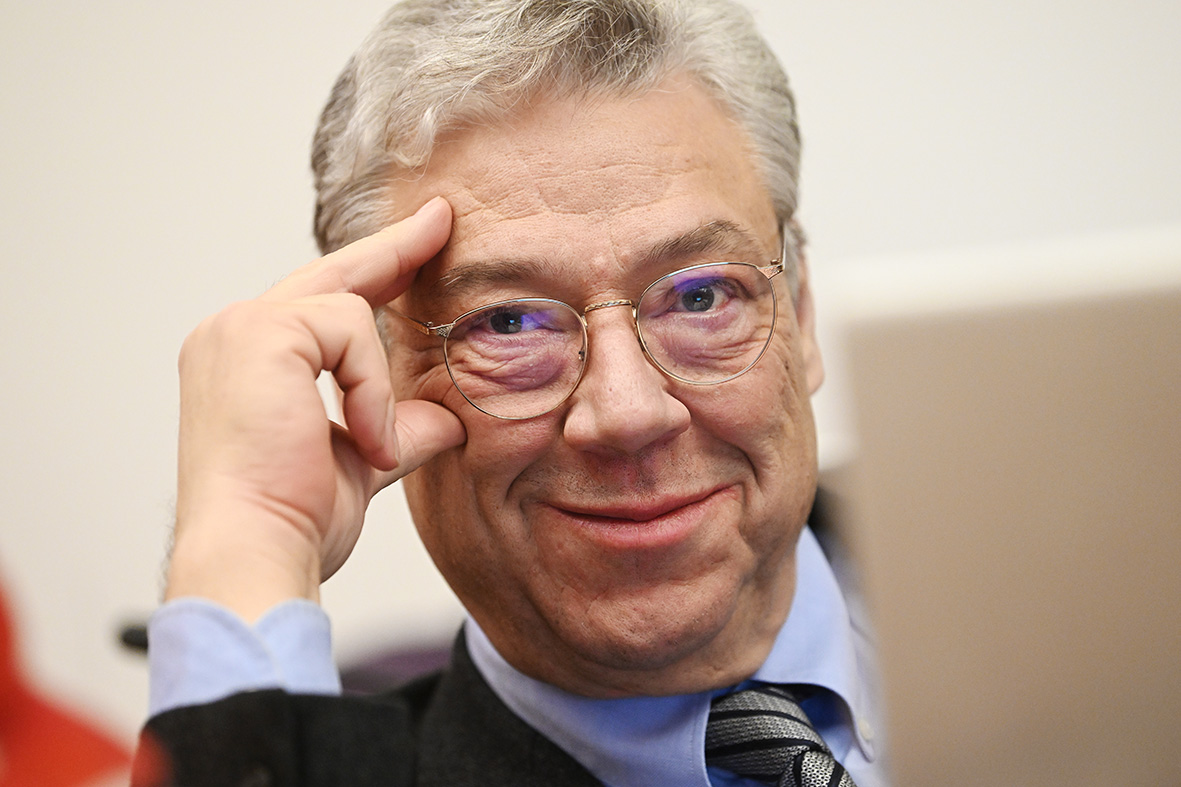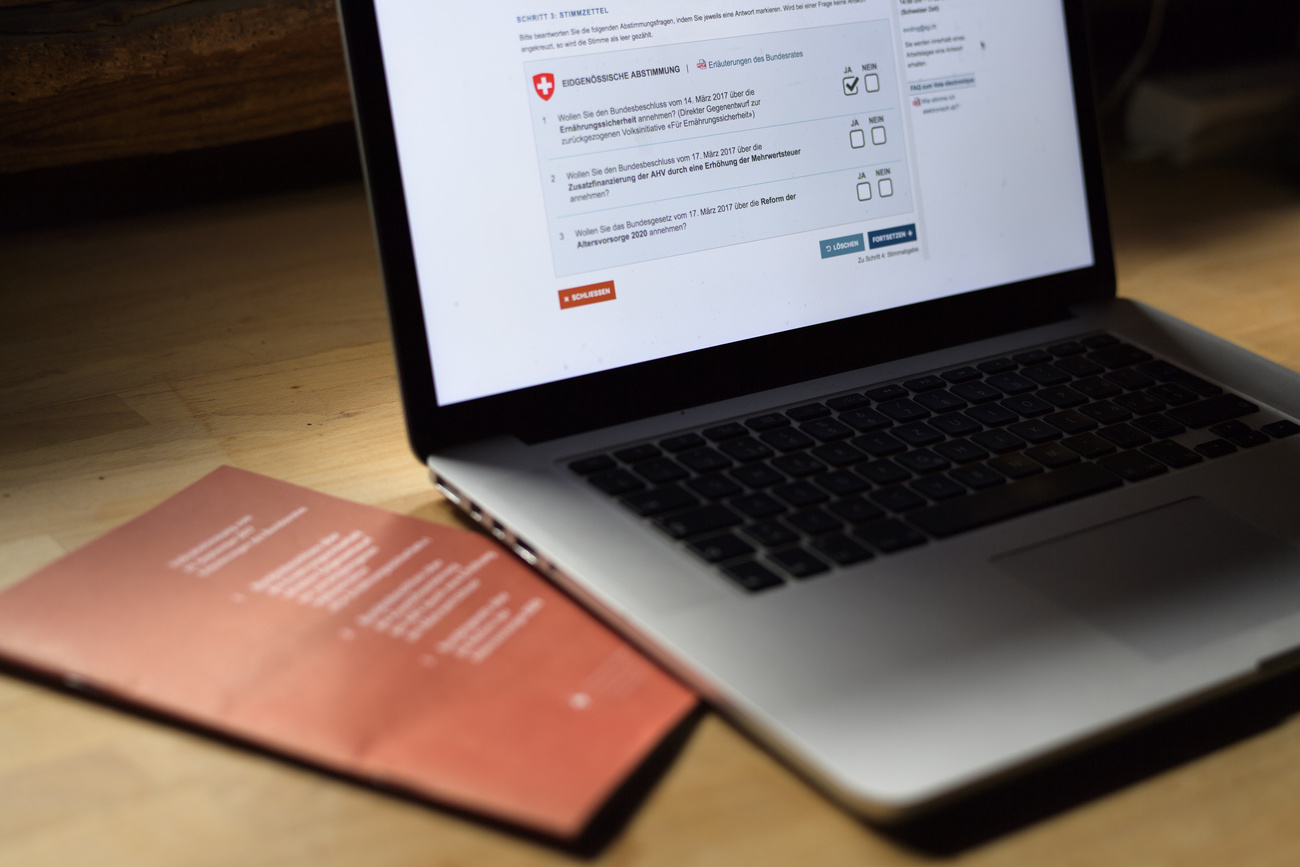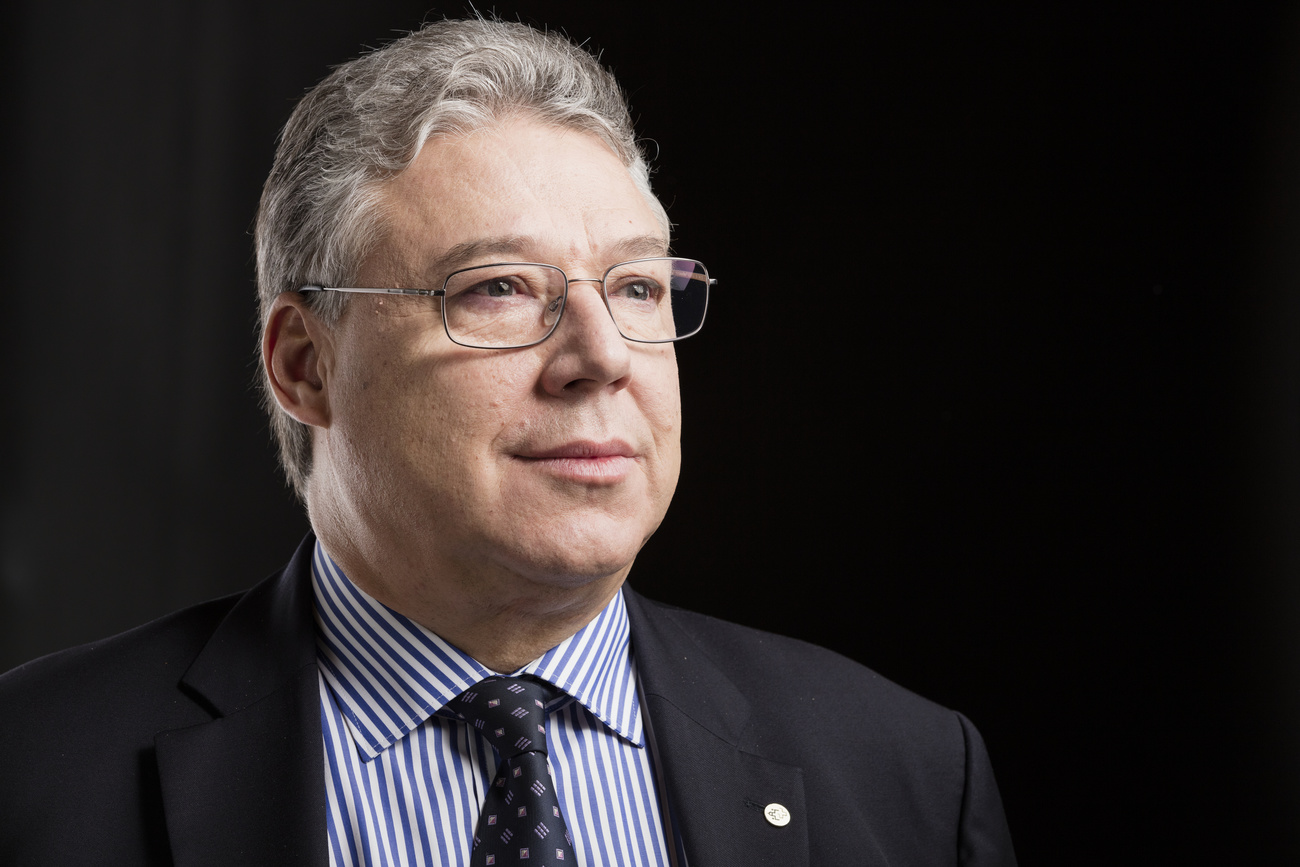
Swiss Abroad president says communication is still a challenge

Filippo Lombardi, president of the Organisation of the Swiss Abroad (OSA), looks back on the parliamentary term. He points to success on two issues. “But it wasn’t easy,” he tells SWI swissinfo.ch.
SWI: The Swiss parliament is coming to the end of this legislative term. How did it go?
Filippo Lombardi: In terms of lobbying on behalf of the Swiss Abroad, Covid made this legislative period difficult for us. During the pandemic we did more lobbying with the foreign ministry on the concerns of the Swiss Abroad. It was difficult for us to meet parliamentarians [in person]. And yet we scored points, especially when it comes to e-voting. There we finally made a breakthrough.
SWI: The initiative of Federal Chancellor Walter Thurnherr, who is known as a committed promoter of digital democracy, was particularly helpful here. How important was that?
F.L.: Yes, he undoubtedly took the lead. Formally, the decisions were taken by the Federal Council [Switzerland’s seven-person government], but the entire implementation was carried out by the Federal Chancellery. In particular, it successfully held dialogues with the chancelleries of each canton. We are a federalist country. The government cannot simply decree. It has to convince, and that was the great merit of the Federal Chancellery.
SWI: There was a damper in the summer with various data leaks, and federal data also ended up on the darknet. How well does the government handle data?
F.L.: Yes, it was a setback, but with no negative effects. The fact that someone has acquired the subscriber addresses of a magazine is certainly not optimal…
SWI: You are alluding to the fact that the subscriber addresses of the OSA magazine ‘Swiss Review’ also ended up on the darknet.
F.L.: Yes, and I don’t really see any damage there. In any case, we are not aware of anything so far.

More
Data leak affects 425,000 Swiss Abroad
SWI: Nevertheless, how well does the federal government handle data?
F.L.: The question is justified but there are 246 sitting parliamentarians to answer that. I, as a former one, will not answer for the federal government on this matter.
SWI: I will ask it differently. Is the OSA worried because the leak happened?
F.L.: Of course, we asked ourselves what consequences this would have for the subscribers of Swiss Review. But as I said, the e-voting system is not affected by this case. We also don’t believe there has been any feedback.
On the other hand, it’s clear that at the moment there is barely any place in the world where absolute security exists. There are always new ways to steal or damage things. We have to live with that and we have to prepare for it.
SWI: Three cantons are currently participating in the e-voting trial. Will there soon be more?
F.L.: Yes, I assume that things will now move forward quickly. Our hope was that for the October 2023 elections all Swiss Abroad would have the chance to do so. This isn’t the case yet, but it will be in the end.
SWI: In June, some 4,000 citizens voted electronically. E-voters haven’t achieved critical mass yet. However, if their number increases, opposition to e-voting could grow. Do you share this assessment?
F.L.: I assume that experience will lead to progress and security will remain guaranteed. Taxes, AHV (OASI – Old Age and Survivors Insurance), bank accounts – all of this is possible electronically, and it works. Compared to the advantages of e-voting, the risk is small.
SWI: What are the advantages?
F.L.: That all our citizens who have the right to participate in Swiss democracy can do so, no matter where they are in the short or long term.

More
Voters and cantons enthusiastic about ‘successful’ e-voting trial
SWI: Another ongoing issue for the Swiss Abroad is bank accounts. They are still discriminated against. What’s going on here?
F.L.: Here, too, I can speak of a breakthrough. From the beginning it’s been difficult to make changes politically because banking contracts are private contracts, so we haven’t achieved a change in laws or regulations. But thanks to pressure in recent years, this year we managed to reach agreements with the banks.
Various big banks have become more friendly and provide us information that we can publish. And two banks have now officially announced that they want Swiss Abroad as customers – the Cantonal Bank of Geneva and the Cantonal Bank of Zurich. We also have agreements with both. We promote them in our media and invite them to the [Swiss Abroad] congress.
SWI: So does the OSA receive money from these banks? And if so, how much?
F.L.: Yes, we have a normal sponsorship contract with both banks for the advertising they place with us. It should be noted that the government, which largely finances the OSA, expects us to find other sources of funding.
SWI: This also came about outside of parliament. What actually happened in parliament?
F.L.: We communicate more, for example with newsletters. And we’ve been able to expand the parliamentary group of the Swiss Abroad. They are active in the federal parliament and come to our meetings.
SWI: The topic of the free movement of people was still on the table. The Council of the Swiss Abroad adopted a resolution in August 2022. But now the Swiss People’s Party has launched an initiative to cap the resident Swiss population. Is this dangerous?
F.L.: If the proposed measures were implemented, it would be dangerous, yes. But I don’t think it will pass. It reminds me of the Ecopop (Stop overpopulation – safeguard our natural environment) initiative, which was clearly rejected by 74% of voters in 2014. People are beginning to understand that our prosperity does not come from isolation, but from interconnectedness.

More
Right-wing party wants a cap on resident Swiss population
But there are other dangers ahead. There are moves to abolish dual citizenship. At home, this would force some people to give up one nationality. But for the Swiss Abroad, the consequences would be devastating because 75% of them have dual nationality. They would have to make a choice.
Do we want to lose a third of our Swiss Abroad community? We’ve always said that the Swiss Abroad are our ambassadors to the world. They help us as a country to be better understood. They are also a relevant economic factor. Therefore, I very much hope that this will not happen.
SWI: So, what is the current state of affairs?
F.L.: There is a cantonal initiative from canton Zug. It will be on the table in the next legislature, probably in 2024.
SWI: The free movement of people is also closely linked to Switzerland’s relationship with the EU. How do you assess the situation at the moment?
F.L.: The free movement of people is not currently in danger, but it is very important for the Swiss Abroad. Strained relations are taking a toll on some areas, such as students and research in general. The EU is unlikely to deviate from its principles, but it could be that the package will become slightly more generous over time. We are currently blocked on stock market equivalence, market access for financial services, energy, Horizon (the EU’s funding programme for research and innovation), Erasmus (the EU’s programme to support education), and so on. In these areas, opportunities are emerging that could add up to a package that is a bit more palatable for Switzerland.

SWI: What other challenges does the OSA confront at the moment?
F.L.: They lie in communication. We still communicate too little and too much from the top down. Above all, we need to facilitate more horizontal communication, for example, by promoting exchange among our associations and among the Swiss Abroad. We must also strive for bottom-up communication so that people can express their needs. This applies to the overall organisation, the clubs, the national umbrella organisations, the Swiss schools abroad – everything.
SWI: Have any steps been taken in that direction?
F.L.: Yes, in Spain, Mexico, Argentina, Britain and Sri Lanka. It is also starting in Germany. Young people are also increasingly coming back to our platforms, thanks to social media.
SWI: With what expectations?
F.L.: That hasn’t changed much. People expect information, services, representation, networking and advice from us. They come with questions and expect an answer. Here, too, we can improve by responding faster.
SWI: And at home?
F.L.: Our efforts to improve communication also help to ensure that politicians and the public are more aware of the concerns of the Swiss abroad. After all, that is our task: to show that this community is of central importance to our country.

More
Filippo Lombardi elected new president of Swiss Abroad

In compliance with the JTI standards
More: SWI swissinfo.ch certified by the Journalism Trust Initiative






























You can find an overview of ongoing debates with our journalists here . Please join us!
If you want to start a conversation about a topic raised in this article or want to report factual errors, email us at english@swissinfo.ch.